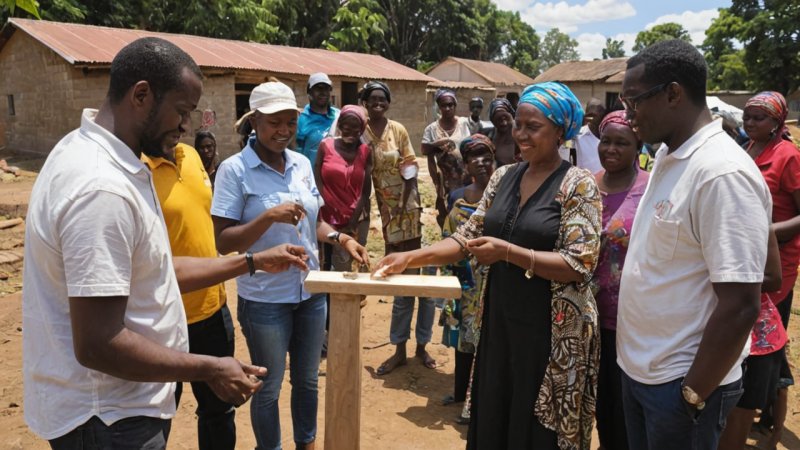Involving local communities in development projects is essential for their success and sustainability. When communities take an active role in shaping their future, they are more likely to support initiatives that reflect their needs and aspirations. This article outlines key strategies to effectively engage local populations in development efforts.
First and foremost, building trust is crucial. Development organizations must prioritize establishing genuine relationships with community members. This can be achieved through open communication, listening to their concerns, and actively involving them in project planning. Regular community meetings and workshops can serve as platforms for dialogue, allowing locals to voice their opinions and contribute ideas.
Another effective approach is to identify and collaborate with local leaders and influencers. These individuals often possess invaluable knowledge about the community's history, culture, and dynamics. By working alongside them, development projects can benefit from their insights and gain wider acceptance among residents. Moreover, empowering local leaders to take on project roles can foster a sense of ownership and responsibility within the community.
Training and capacity building are also vital components of involving communities in development projects. Providing skills training and resources enables locals to participate meaningfully in project implementation. This investment in human capital not only enhances the quality of the project but also ensures that skills are retained within the community, promoting long-term sustainability.
It is important to ensure that development projects are culturally relevant and tailored to the specific needs of the community. Conducting thorough assessments before project initiation can help identify local priorities, resources, and challenges. Engaging community members in this assessment process helps them feel valued and recognized. Furthermore, when projects align with local interests, community support naturally follows.
Transparency is key to fostering trust and commitment. Regular updates on project progress, challenges faced, and successes achieved should be communicated to the community. This openness encourages accountability and invites community members to contribute solutions to problems that may arise during project implementation.
Additionally, creating opportunities for community participation in decision-making processes is vital. Establishing committees or advisory boards that include local representatives can ensure that development projects remain aligned with community needs. This participatory approach fosters a sense of shared purpose and collaboration, ultimately leading to better outcomes.
Lastly, celebrating community achievements can strengthen engagement and motivation. Organizing events to acknowledge the contributions of local individuals and groups not only showcases progress but also reinforces the idea that development is a collective effort. Highlighting success stories can inspire further participation and commitment from community members.
In conclusion, involving local communities in development projects is essential for achieving meaningful and lasting change. Building trust, collaborating with local leaders, providing training, ensuring cultural relevance, maintaining transparency, facilitating participation in decision-making, and celebrating achievements are all critical strategies. By embracing these approaches, organizations can empower communities, foster ownership, and create a positive impact that resonates for generations.
Empowering Communities: Involving Locals in Development
Involving local communities in development projects is essential for their success and sustainability.






